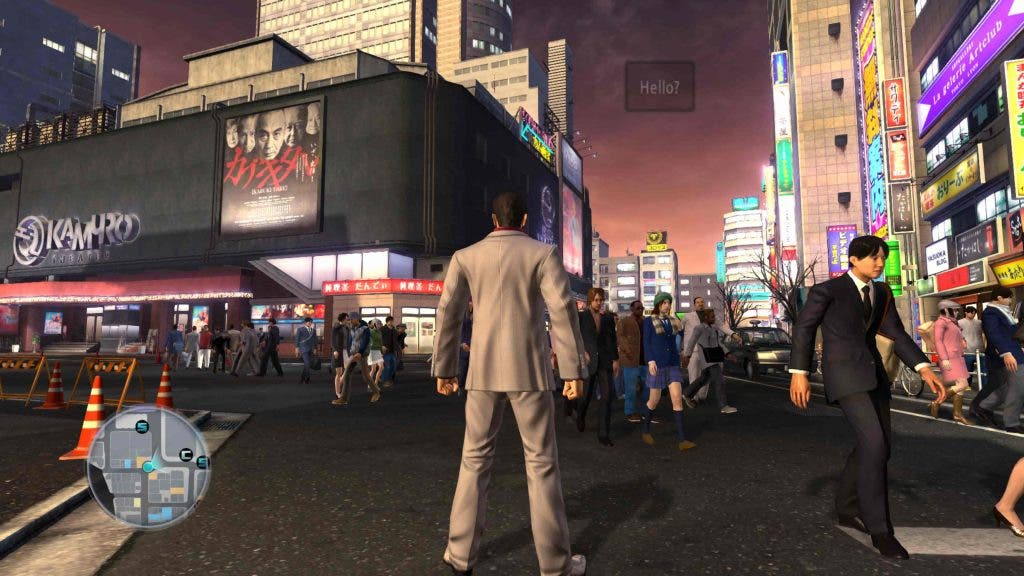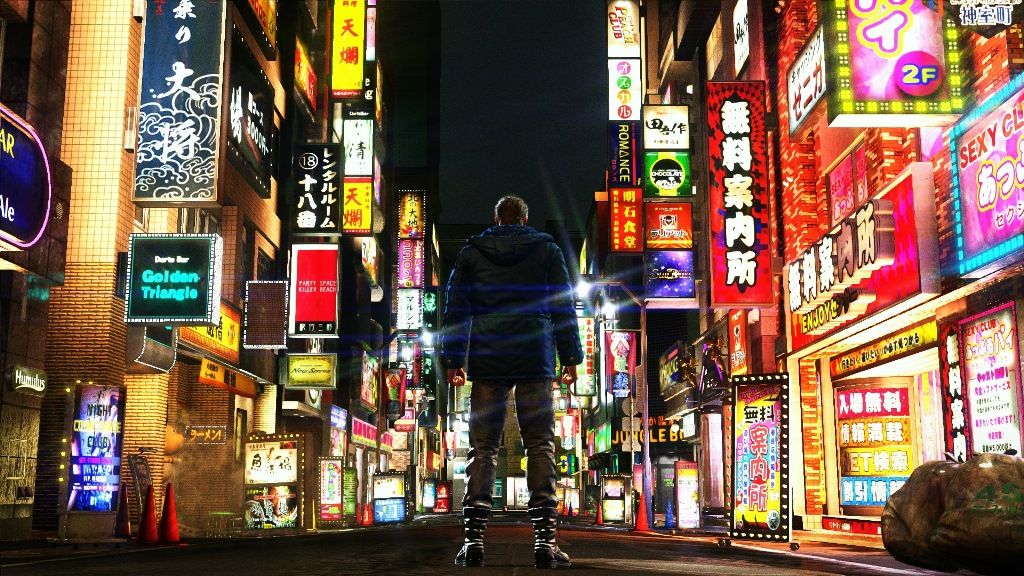Yakuza 6 is good, actually
Looking at SEGA's Yakuza franchise, there's a point where the series shifted away from its traditional approach of last-minute twists and tried punching above to have more "tame", grounded storytelling.
Yakuza 0 in 2015 was probably the most obvious shift -- it's widely loved for having a very airtight and well-paced narrative that doesn't really slip in too many narrative frustrations or eleventh-hour plot twists. While I felt the earlier style had its charm, the series took a bold step forward with Zero.
Let's look at the new content that came out after that game:
- Yakuza 6
- Judgment
- Yakuza 7 (Like a Dragon)
- Lost Judgment
- Like a Dragon Gaiden
I don't know about you, but I'd argue these five games have more reserved and overall better writing than a lot of the stuff that game before. Yokoyama and new writer Tsuyoshi Furuta have played a big role in causing that shift.
Furuta's first game, believe it or not, was Yakuza 6.
6 marked the first time the franchise would shift to a wholly new engine since Kenzan. Every game that released from the studio from Kenzan to Fist of the North Star: Lost Paradise uses various iterations on the same PS3-era engine. While I think it looks good, 6 looked... gorgeous.
Here's Yakuza 3's iteration of Kamurocho.

Here's 6:

This is from the game's demo.
There's a huge jump in terms of realism. Textures are larger, movements are more natural, and transitions between entering locations, leaving, doing whatever are all seamless. Everything feels fresh and new in a way that the series really needed. While the old PS3 engine is still perfectly competent, it's limited in terms of how well it can scale up on modern hardware. Which brings me to my first point, and this is something that 6 still does the best in the entire series:
Yakuza 6 is able to avoid the jarring disconnect between substory, minigame, and main story presentation.
Everything is voiced. All of the substories feel less like lower effort padding and instead feel like purposeful parts of a whole. There's no ticking text box sound -- everyone talks to and addresses Kiryu and he responds in turn. It's reminiscent of Yakuza 1 and 2's insistence on having several substories with main-story presentation and cutscenes. Just.. absolutely great stuff. The game has a very solid attention to detail with the world it's fleshed out.
It's a game about Kiryu's life.
Yakuza 6 is able to explore aspects of Kiryu's life in a way that doesn't feel particularly heavy handed. Whether it's the similarity of the Hirose family to Yakuza 3's Ryudo family, Hirose himself being eerily similar to Kazama, and the core theme throughout the series of fatherhood, 6 is aiming for something higher than simple fanservice.
And that's what frustrates me about the way a lot of people perceive this game -- they act as if this series is starved of constant fanservice, self-fellating, and references to past glup shittos.
Seriously, let's look at the last few games that dropped before 6.
Yakuza 5 does have a lot of fresh, new material, but the majority of the characters appearing are veterans. It feels the need to pull out the ensemble cast accumulated over years for its very grandiose story.
Ishin is literally raw fanservice and a large part of its appeal is quite literally just seeing past, sometimes deceased characters play different roles. Here's Ryuji, and Mine, and Akiyama, and Aizawa and Baba and Saejima and Majima... If you're starved for cast interactions, there's more than enough here to last you hours.
Yakuza 0 thankfully has a lot of fresh, new characters written just for its prequel, but at the same time it's very much so tied to Yakuza 1 and its cast. Tons of characters throughout the series have younger versions here. It's quite literally a 10th anniversary game for the franchise and I can understand why it felt the need to honor the franchise's cast one more time.
...So now we go into Yakuza 6. Don't you think that an overbearing presence of the main cast is a little too much for a game like this? Again -- it's a game mainly about Kazuma Kiryu's life, not him and his friends. They don't cease to exist, but there's a reason the game shifts to an entirely fresh location with limited interaction from past characters.
Japan and its struggle to accept the future
6 being a massive technological jump fits its themes perfectly. The core conflict that has a bunch of old men throwing tantrums is the potential exposure of a "version 2" of a legendary WW2 battleship to the world. I'm very confused why so many people don't seem to get the political relevance of the big ass boat towards the end of the game. It's the perfect representation of stubborn wrinkly ass niggas clinging to an old Japan long gone.
The beautiful city of Onomichi has a festering, disgusting mold growing underneath it, and what hit me is the scathing commentary this represents as a whole for Japan. Minoru Daidoji has literally shit on the ground and a bunch of grown ass adults are trying to cover it up and make sure nobody knows. I can't really think of any other plot point in this entire franchise that is such an actively politically charged statement. Ishin, the game quite literally ABOUT the Bakumatsu period and leading into the Meiji Restoration, has the most milquetoast nationalist messaging ever in comparison.
The only thing that really feels similar in approach is the Empty Lot in 0 -- a perfect representation of bubble-era Japan and its obsessive greed and corruption; its absolutely absurd real estate market. Buckets of blood were spilled just to reclaim a tiny patch of land. But 6's commentary is contemporary. A lot of people still reminisce Imperial Japan and I would not be surprised to see real life skeletons in the closet if we examined a lot of public figures and areas in the country.
Outside of the secret of Onomichi, Kiryu gets out of self-imposed jail literally greeted with the enormous shift in technology over the years; everyone has a smartphone now, Grandpa. People fly drones, clock hours into sex chat sessions, and use their phones as an extension of themselves. But above all else, there's a clear lack of yakuza present.
The Tojo isn't really holding all that well together. Sugai sets flames to the city, attempting to take advantage of the declining organization to bookend Daigo's reign. Someya, who literally works with him, insists on the world of yakuza shifting -- profit raises when you get rid of a lot of the silly conventions guys like Kiryu stand by.
Fatherhood!
This series is about fatherhood. Nagoshi personally had an incredibly strong bond with his father and this encouraged the narrative of the original game to be the way it was, as well as allowing the theme to become the beating heart of the franchise. 6 explores the challenges of fatherhood in a quickly shifting world, and the need to sometimes break away from old conventions or change quickly in order to embrace those around you.
The core of 6's conflicts pretty much originate from fatherly bonds in different ways.
Kiryu's relationship with Haruka.
Yuta's relationship with Haruto.
Big Lo (Saio Triad leader)'s relationship with Jimmy and Yuta.
Hirose's relationship with his boys, and Hirose's relationship with Heizo Iwami.
Kiryu and Daigo.
It's... not subtle. Yuta's entire arc as a character is being able to break the cycle of shitty upbringing to become a real father of his own. Despite being a "black child" -- kids that don't fall under the one-child policy -- and treated like nothing but an asset to the Saio Triad, he's able to take responsibility for his kid (after Kiryu punches him into shape).
I don't think 6 could even work juggling both this subplot and also bringing in a bunch of older characters. They... wouldn't really have any relevance or do anything meaningful. They'd just sit there.
I think this is an issue with games like Yakuza 5 and Lost Judgment, which have characters that have gone through full arcs in past appearances and now don't really have anywhere to go outside of just becoming mouthpieces for their beliefs or very paper-thin single-purpose existences. No hate to either of those, I like them quite a bit and maybe even more than 6.
6 is not a betrayal of past games
If it wasn't obvious already, 6 has a lot of reverence for the rest of the series, especially Yakuza 3. One thing I think a lot of people misunderstand about these games is that Kiryu from the get go will never be able to leave behind conflict so long as he exists. In Yakuza 5, he insists on taking on a new identity, but realizes later on this can't work. Haruka runs back to him, because she cares way more about her ojisan than an idol performance. She knows the risks and implications, and deals with them promptly in the next game. She's willing to carry that weight, and so is he.
The only way to ensure the people he loves stay safe is to unfortunately leave their lives. Kiryu, as a prolific member of a literal criminal organization, has a constant target on his head. Somebody will always look to him for conflict, even after the Tojo Clan dries up and dies. He chose to join this life all the way back at Himawari Orphanage, and there is no real way for him to pull out at this point.
I'm sure this is unintentional, but I think the finality of 6's ending and his departure from his family works well at poking fun at RGG's insistence on bringing this guy back constantly. Yakuza 3 was supposed to be his last game, and maybe if things wrapped up then I could understand him taking the slow life and enjoying Okinawa. But they brought him back in 4. And... despite him not even wanting it, he's back in 5.
7, Gaiden, and 8 -- we have to let Kiryu go.
Gonna catch a lot of flak for this, but I don't really think anything Kiryu post-6 was necessary. Like, at all. His appearance in 7 is downright disrespectful towards his sacrifice before. I don't care if it's somewhat honored by the people around him, he shouldn't be casually strolling around Yokohama like that.
Gaiden is a really solid self-contained piece that works by course-correcting from Kiryu in 7 and helping tie things back into 6's sacrifice.
8... I can't really make any solid statements on, but I do think one of my concerns is this being the glup shitto game that I'm happy 6 wasn't. The game has completely abandoned the secrecy of Kiryu, which isn't inherently a bad thing, but his story still needs to END.
The potential of Kiryu becoming unable to fight, either by dying or losing enough strength from his cancer, would provide a level of finality to his life, which is what I really need. I just don't want to leave the game feeling like 6's very bold sacrifice was in vain.
Yakuza 6 is far from a perfect game, but I think I've highlighted why it's at the very least an incredibly thoughtful and meaningful game that understands who Kiryu is and what this series stands for. It doesn't deserve a black sheep status.